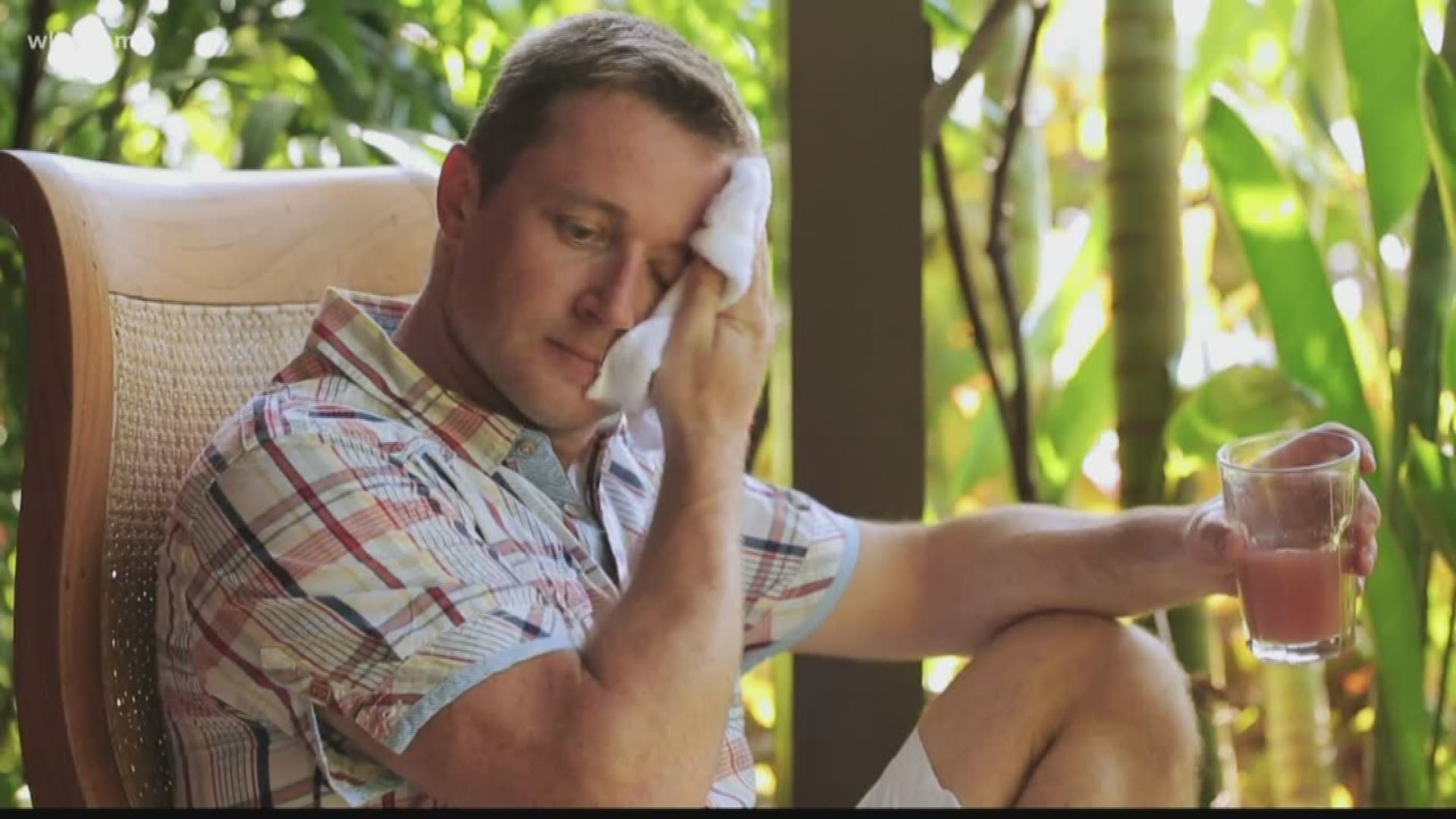Columbia, SC (WLTX) -- This Memorial Day weekend could bring record-breaking temperatures with it.
News 19 is on your side helping you know the difference between two prominent heat-related illnesses and how to prevent them.
Dr. Daniel Avosso, the Medical Director of the Emergency Department at Lexington Medical Center, says what's concerning is how fast temperatures can change within a short amount of time.
"The mornings start off so cool, so people go outside, start working in the yard...then it gets hot really fast. Before you know it, it's 90-95 degrees out," said Avosso. "We're seeing a lot of people come in already."
Experts advise you stay hydrated. Replace those electrolytes if you're out in the sun all day.
"If you wait until you're thirsty, it's too late," said Avosso. "You have to drink water before you get thirsty. Especially early in the year when folks aren't acclimated to these types of temperatures, you're at a much greater risk for heat-related illness."
Avosso says the World Health Organization puts heat-related illnesses on a spectrum.
It starts with heat cramps, heat syncope (where you can pass out), heat exhaustion, heat injury and heat stroke.
"The problem with heat stroke, though, is sometimes people don't recognize it," said Avosso. "It has a high mortality if it's not treated, and you have to come to a hospital."
Here's how you can tell the difference between heat exhaustion and heat stroke.
Some symptoms of heat exhaustion include excessive sweating, nausea, and weak pulse. If you see someone suffering from heat exhaustion, get them to an air conditioned place. Have them drink water, and use a cold compress.
If you ignore or don't recognize the signs of heat exhaustion, it can lead to heat stroke
Heat stroke is life-threatening and early recognition can prevent permanent brain damage. Signs of heat stroke include, hot dry skin, body temperature of over 103 degrees, and a rapid, strong pulse.
If these symptoms are reached, call 911 right away.
Staying in an air conditioned area is the best answer to prevent heat-related deaths. If you can't do that, drink plenty of water wear lightweight clothes and limit sun exposure.
"I think the most important thing is if you're out there in the heat, be careful with the alcohol," said Avosso. "Be careful with over-the-counter medications. If you have a cold or you're feeling sick or you have a fever, just wait until you're feeling well to go out there."
Antihistamines could impair your body's ability to cool and sweat properly. Blood pressure medicines can also lead to electrolyte abnormalities and impair your ability to sweat, Avosso said.
He adds that mom or dad, as they get older, are at an increased risk for heat stroke, heat exhaustion or heat illness. The reason, Avosso says, is because they're not acclimated and used to severe heat.
"Realistically we're not going to stay out of the sun," he added. "We love it and we're gonna go out there, but you have to stay well hydrated. If you start not feeling well, get out of the heat."

